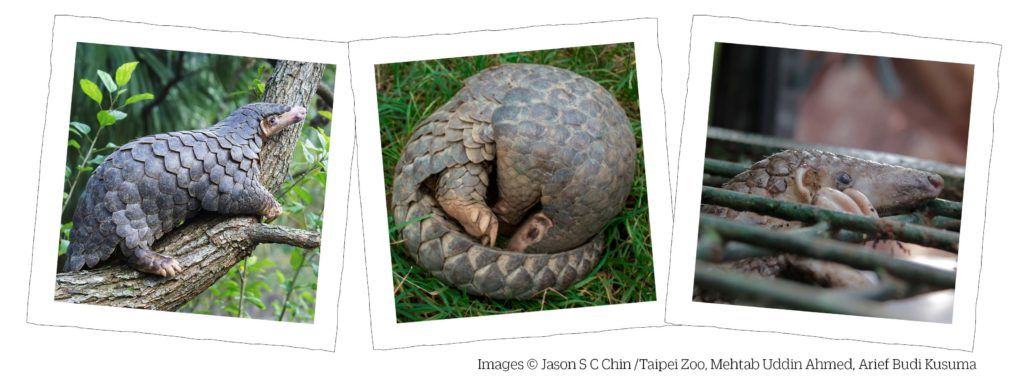Pangolin appeal
Make your donationProtect our pangolins
Wildlife trafficking has changed the world as we know it. We are yet to fully establish the origins of coronavirus, but it is likely that the wildlife trade played a pivotal role in the transmission from animals to humans. The trade puts our precious wildlife at risk of extinction and threatens human health on a global scale. Often illegal and unsustainable, it’s difficult to monitor as business is driven underground, out of sight of authorities.
The most trafficked mammals in the world are believed to be shy, scaly pangolins, who are captured from the wild and sold to the highest bidder. The animals are likely to be eaten, or end up in traditional medicines.
It’s estimated that we’ve lost a million pangolins over the past decade.
Making the trade illegal and removing pangolins from the Traditional Chinese Medicine handbook are positive steps, but experience tells us that the demand will sadly remain high. To tackle the root cause of this trade, we must understand why people want to consume pangolin products. We’re supporting Dr Nabajit Das in North-East India, where Chinese pangolins desperately need our help. This species is considered the most critically endangered of all eight pangolin species.
Nabajit and his team must first find out how many pangolins still exist in the area and which habitat they prefer. The next step is to understand why people in the region consume Chinese pangolins, so the team will conduct interviews with traditional healers, hunters, and tribe leaders.
The team will run school workshops to demonstrate the importance of wildlife and pangolins in our ecosystems. Nabajit will also take on the challenging role of convincing hunters to leave pangolins in the wild. If you can stretch to a donation of £40, you could cover the weekly cost of a research assistant to help Nabajit with these enormous tasks.
This project will pave the way for long-lasting change for Chinese pangolins, as well as helping stop the trade, protecting human health and countless other species at risk. As someone who cares about our planet, we know you’re as worried as we are. Thank you in advance for anything you can give.
With warm regards,

Nida Al-Fulaij
Grants Manager
Image credit: Jason S C Chin, Taipei Zoo


